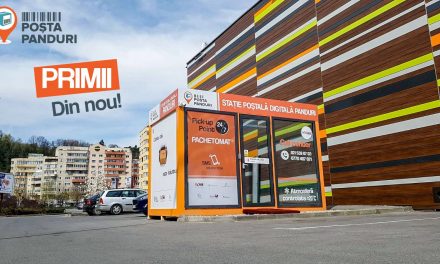
The EU Commission’s E-commerce Delivery Challenge
Mail & Express Review contributor Brendan Pittaway talks to Werner Stengg, the EU Commission official behind today’s major consultation on cross-border parcel delivery. The European Commission has launched a major consultation today on cross border parcel delivery, which could herald great changes in how the post and parcel sectors will interact with ecommerce in the future.
This process is being led by Werner Stengg, the Commission’s Head of Online and Postal Services, an Austrian who believes that resolving current difficulties is important to more than just those working in the retail and delivery industries.
“E-commerce is an enormous, fast-growing area,” he says, “and, as such, it demands particular attention right now because everyone is looking for growth and job creation in a time of economic crisis. We believe that it has tremendous potential for further growth. That’s not me daydreaming. There is plenty of evidence both from our studies and those of others.”
Stengg adds: “Delivery has already been identified as something of a key bottleneck or obstacle. Traders, especially SMEs, have told us that they could sell even more than they do if there were more affordable, high quality delivery options. It’s certainly not a matter of blaming anyone for what is a complex situation. What we are trying to do is find out how best to improve things in a way which works for everyone – retailers, consumers and operators in the post and parcel sectors.”
Europe, it seems, is committed to bringing about the necessary changes. Stengg believes that the current consultation offers sellers, shoppers and shippers alike a unique opportunity to determine the direction which e-commerce will adopt on the digital super highway.
Indications as to the nature of “a road map” could, he suggests, emerge as early as spring 2013.
Barriers
This urgency is understandable, and not only because of the Commission’s desire to develop a thriving digital economy by 2020.
Earlier this year, an EC-commissioned report highlighted the limited extent to which citizens in its 27 Member States had been able to embrace Internet retail. Even though the continent generated EUR 200bn in e-sales, only 1% was accounted for by cross border.
The problem, Werner Stengg believes, may lie in the failure by some operators to fully exploit the same kind of technologies which have enabled the online shopping boom.
“There simply has to be a better connection between the various parts of the e-commerce equation – the retailers, delivery firms and consumers – which allows cheaper and more transparent movement of purchases cross border. That is something which is missing in quite an extreme fashion at the moment.
“For instance, many national parcel operations are organised on a basis which predates e-commerce extending across national boundaries. As a consequence, postal operators in different countries have IT systems which don’t or can’t talk to one another. That, in turn, means something like track and trace is impossible.”
The barriers do not end there.
“Someone buying something shipped as a small packet or parcel weighing less than 2kg often has to opt for a premium delivery service in order to find out where it is. When they have spent, say, EUR 15 on their purchase, it’s only logical that they won’t want to spend another EUR 15 on delivery. So, the consumer, the retailer and the delivery firms all miss out.”
A recent survey conducted by parcel carrier DPD discovered that 73% of consumers had abandoned purchases when faced with restricted and expensive delivery options.
Stengg, who confesses to shopping online “all the time,” believes that consumers also need educating and may need to adjust their expectations, not least because many of them have become so used to the idea of free delivery that they question whether they should have to pay at all.
“If the industry informs them about the different roles and costs associated with parcel delivery, they will understand and accept that there may well need to be a charge, especially if they want to receive something quickly or on a particular day.”
Convenience

The EU Commission’s Head of Online and Postal Services, Werner Stengg, says improvements promised by industry have taken too long, or haven’t happened at all
Whilst many consumers, companies and eurocrats acknowledge that change is inevitable, there are those who argue that this is, in fact, not required. Postal operators claim they are already taking steps towards meeting the needs arising from e-commerce which would render legislation or other public intervention unnecessary.
Stengg says some retailers have complained about any improvements being “piecemeal” and not replicated across Europe.
In other cases, promised change has either taken too long or simply not happened at all. He insists that such delays risk hindering the realisation of the full potential benefits of commerce and will impact existing operators’ own fortunes, as they get overtaken by those who choose to invest and to innovate.
The adoption of parcel lockers, such as Nightline’s Parcel Motel in Ireland, and the introduction of convenience store collections and deliveries, including Amazon’s use of CollectPlus in the UK, Hermes’ parcel shops and UPS’s investment in Kiala’s network in France and Belgium, all underline Stengg’s conviction that e-commerce, and the post and parcel firms which serve the industry, will be increasingly shaped around consumers.
“I suppose the only problem I have buying on-line is one of convenience, such as the post office being closed when I want to collect something. I don’t think I’m alone in that experience. Parcel lockers and relay points provide interesting options,” he says.
“We now have to consider which options are good ideas that we might want to take forward. We want to make sure that what comes out of it will be best practice that really works to the benefit of consumers, delivery firms and retailers.”
The European Commission’s public consultation paper, “An integrated parcel delivery market for the growth of e-commerce in the EU” is now available on the Commission’s website. The consultation is now open, inviting views from any stakeholder by 15th February, 2013.
- This article appears in full within the December edition of the respected quarterly industry journal, Mail & Express Review. Click here for subscription details »












